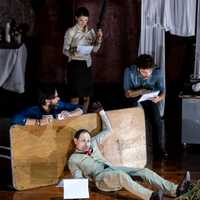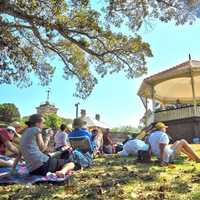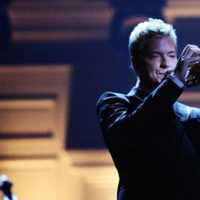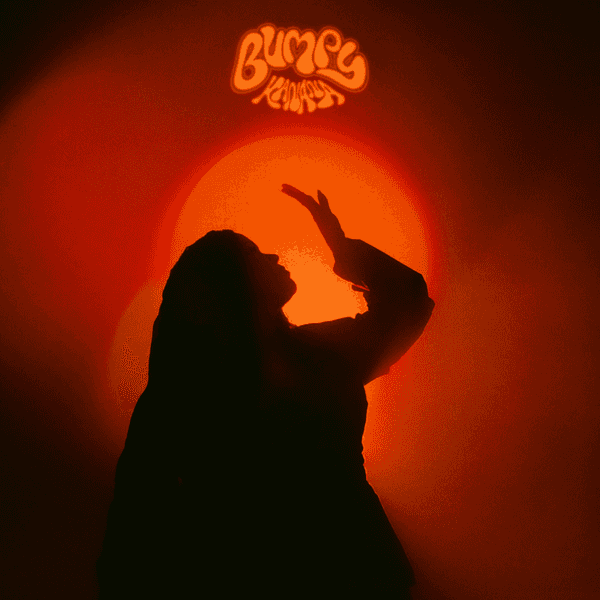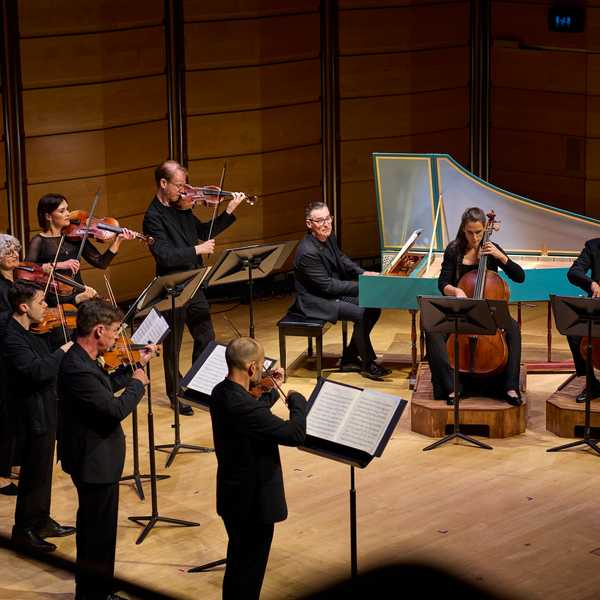Written by Jake Stone

Aunty Marlene Cummins tells her unique and powerful story in song for ‘Marloo’s Blues’, a key feature of SIMA’s Sydney International Women’s Jazz Festival.
‘In the immortal words of my favourite blues singer, Savannah Doolan from Woorabinda Mission in Queensland – “I sing for my people.”
Marlene Cummins is a legend in Australian blues and jazz. Though it’s difficult to determine her age, Marlene has been living the blues for over fifty years.
Influenced by Big Mama Thornton, Etta James and Ray Charles, Cummins’ music is rooted in spirituality, her Aboriginal identity and the desire to tell her unique story.
Her upcoming show ‘Marloo’s Blues’ celebrates Cummins’ bravery and her life in song, live performance and visual art.
‘It’s all about that Aboriginal footprint, and you bring that in your belief systems and value judgements.’
‘This isn’t about making white people feel guilty, it’s about looking at the way that Aboriginal people were treated in this country.’
Cummins is a lifelong political activist, devoted to preserving the complex history of Aboriginal people.
‘We worked hard. My mother, my aunties, my grandmothers – women all over this country,’ she says. ‘That’s why I’ll be acknowledging Aboriginal women at my gig. Aboriginal women were the backbone of the struggle.’
‘We were of this land, and the land is of us.’

In conversation Aunty Marlene is uniquely warm, funny and rarely shy when it comes to detailing her personal history and the experiences of Indigenous people in Australia.
Born in Cunnamulla, southwestern Queensland, Cummins is the direct descendant of the Guguyelandji and Woppaburra people from the Cape York and Great Keppel Island regions.
As a young woman, her family were affected by colonial policy like The 1897 Act – laws that strictly controlled the lives of Aboriginal and Torres Strait Islander people in Queensland.
‘My father was taken away when he was seven years old. He used to get flogged with a horsewhip’, she says.
‘But he made it his business to learn to play trumpet. He taught himself to drive the big caterpillar tractor, and paved a lot of the roads in the outback towns. And he taught a lot of Aboriginal people also.’
Though she remembers him as a complicated man, Cummins understands her father’s difficult lot.
‘My father got battered and beaten’ she says. ‘We’d get that trans-generational trauma – a whupping if we messed up. But he learned music, and he did a lot of things in the community.’
‘And that’s the only way he could deal with his pain, you know?’
‘He got himself a Churchill Fellowship, and went over to the USA and hung out with members of the American Indian movement. My father was ahead of his time.’

Marlene grew up listening to the Aboriginal musicians who passed through her house, invited to stay by her father in order to escape the strictures of the Queensland laws.
‘I could tell you all these stories about amazing dancers, singers and actors. Anywhere else in the world, you’d see people of colour in everyday character roles, whether it’s tv serials or movies…
‘It’s because of the political landscape and the policies that were meted out to Aboriginal people due to institutionalised racism, they never got to see any of it.’
Marlene is passionate about honouring the work of Indigenous pioneers in the arts, some of whom were completely overlooked or actively shut out of mainstream entertainment.
‘There are so many stories of Aboriginal people adapting, resilient despite these oppressive policies. It’s about survival. And these stories have to come out.’
After leaving home Cummins found herself adrift around Australia, working low wage jobs and experiencing hardship that mirrored the historical suffering of her ancestors.
‘(Aboriginal women) were subjected to sexual harassment, they were vulnerable to predators. It was a situation of powerlessness, because we came under the Flora and Fauna Act.’
‘There are a few white authors around, Xavier Herbert, who write about the truth of this country. There are books like ‘Blood On The Wattle’… there are people who write about the truth of this country.’
‘The only way I could come to terms with all those layers of trauma was to do what I do.’
In the seventies Cummins gravitated to the fledgling Australian Black Panther Party, forming a relationship with the charismatic Black Panther party leader Denis Walker.
‘The things that he was saying, I’d never heard it come out of an Aboriginal mouth before. Like “We’re not going to peacefully waving placards and stuff like that, we’re going to get to know our rights!”
‘It was bittersweet,’ she says. ‘All the traumatic shit they were going through got dumped on us.’
Born on the cusp of our modern era, Marlene and her family experienced some of the worst of old school Australia; cruelty, institutional racism and ignorance.
Despite that, Cummins mirrored her father’s independent spirit by earning a scholarship to the Berklee College Of Music in Boston during the 1990’s.
‘I’ve got this thing in me that none of the rest of my family have’ she explains. ‘They don’t want to travel on planes, but I love it.’
While she was studying in the USA, Cummins had some unique experiences. She met Will Smith and Carlos Santana, and spent time visiting with the most dangerous street gangs of 90’s Los Angeles.
‘I carry the spirit of what I represent, even to the deepest parts of L.A.’, she says. ‘I’ve had gangsters, proper gangs of the street inquisitive and interested in me.’
‘Aboriginal people don’t come from a spirit of judgement’, she explains. ‘We come from a spirit of acceptance, sharing and caring.’
‘I brought them some shirts that said ‘Stop Black Deaths In Custody’. They snatched them up, you better believe it!’
‘I went to their house and sang for them, and it must’ve touched on something, because I was embraced by these serious gangsters in South Central, LA. You’ve just gotta take love in your heart, and no judgement.’

Today, Cummins sees the growth of social media as a positive in the movement for Indigenous rights and recognition in Australia.
In addition to her work for SIMA, Marlene is seeking funding for a documentary profiling Indigenous female musicians and performers called ‘Common Ground Blues’.
‘Blues singers like me’, she says. ‘There’s Olive Knight from Fitzroy Crossing, and Lois Olney from up Roburne, and the Mills sisters from the Torres Straight. Savannah Doolan is in there too.’
‘They’re real gems; their own style meshed with some traditional rhythms, and amazing singers.’
Her decision up and until recently to work mostly in her own community is why audiences may be discovering Cummins’ music for the first time.
After years of being misunderstood and objectified by ‘hipster megalomaniacs’ who wanted to objectify and exploit her heritage for their personal gain, Cummins essentially quit working in white society.
She hosts the award-winning radio show ‘Marloo’s Blues’ on Sunday afternoons on Koori Radio, where she does a deep dive into gospel, field hollers, blues, soul and jazz music.
People may have come across Marlene busking on King Street, Newtown, outside the Cinque Cafe at the Dendy Cinema, and have been amazed that this world-class saxophonist was casually entertaining people on the street.
But there has been a shift. Social media and the growth of progressive politics have Marlene feeling positive about the future of Indigenous rights and recognition in Australia. As such, she’s more comfortable performing in contexts like SIMA’s Sydney International Women’s Jazz Fesitval.
‘We seem to be coming to some sort of cusp of truth-telling in this country, but it’s not out there as it should be’, she says. ‘I try to do that in my music.’
Marlene has had a good run in recent years, becoming the focus of the documentary ‘Black Panther Women’, releasing her debut LP ‘Koori Woman Blues’ in 2014, and working as a fine artist, actor and storyteller.
Her ‘Marloo’s Blues’ performance at the Seymour Centre for SIMA’s Sydney International Women’s Jazz Festival will showcase all her talents, including her artwork, personal and historical photography.
Marlene is down-to-earth as an interviewee whose charisma and attention to detail makes her an effective oral historian.
‘You still can’t take the country out of me’, she says. ‘I go camping when I go home, and I go to Cape York, my father’s country, and to Keppel Island, my mother’s country. I talk to a lot of young people. I like to take time out for young people.’
‘You do what you do because people admire you, and you need to have a talent to be able to deliver, but it’s not about saying “look at me”. It’s all about that Aboriginal footprint.’
‘One very good example of how Aboriginal people think that Western society could still learn from, the mindset is past, present and future intentions. That means your past has everything to do with your present and future intentions.’
‘When I want to reach people, I do a little bit at a time’, she says. ‘And it’s good to have music and art as a platform to smooth the way.’
‘I have a code that I need to live by, and in order to continue it all depends on what I have to give.’
‘I’ve to get my saxophone out of the hock shop’, she says, laughing. ‘I don’t just sing it, I live it!

Talking to Marlene Cummins is a real privilege. The depth of her stories, the sadness and the fortitude make her what she is today – an artist, and a true survivor.
‘I have faith, I keep moving forward, and I don’t give up. Wonderful talking to you.’
Who: Marline Cummins – Marloo’s Blues
What: SIMA International Women’s Jazz Festival
Where: Seymour Centre
When: 7:30pm Friday, 28th October 2022
To Find Out More Click Here
Share "Koori Woman Blues"
Copy

